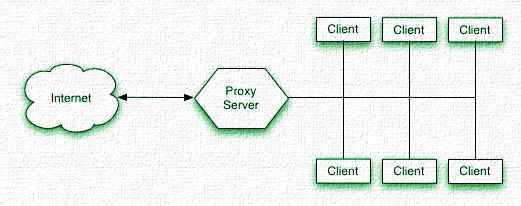The Human Connection: Balancing Technology and Personal Touch in the Age of Automation
As we progress further into the digital age, automation is transforming various industries, streamlining processes, and changing the way we work – all at a rapid pace.
However, amid these technological advancements, it is vital not to forget the importance of preserving human connection.
This is why are always looking for ways to strike that perfect balance between technology and personal touch in today’s automated world.
The Benefits of Automation: Efficiency and Productivity
There is no denying that automation has revolutionised the way we approach work, bringing with it countless benefits to both businesses and individuals.
Automating repetitive tasks means we can dramatically reduce human error, in turn leading to increased efficiency and productivity across various industries.
The below paragraphs will dive deeper into the advantages of automation and how it contributes to a more effective and innovative workplace.
Saving Time and Reducing Costs
One of the most significant benefits of automation is the time it saves.
By automating time-consuming and repetitive tasks, employees can allocate their valuable time to more strategic and creative responsibilities. This shift in focus not only enhances job satisfaction but also reduces labour costs as fewer hours are spent on mundane tasks.
Enhancing Accuracy and Consistency
Automation reduces the likelihood of errors that can occur due to human fatigue or oversight.
Automated systems can perform tasks with a high level of accuracy and consistency, ensuring that processes are executed correctly each and every time. This improved accuracy ultimately results in higher-quality products and services, boosting customer satisfaction and brand reputation.
Scalability and Flexibility
As a business grows, the ability to scale operations without compromising efficiency is crucial. Automation allows organizations to adapt quickly to changing demands by streamlining processes and increasing capacity as and when needed. This flexibility ensures that a business can remain competitive and agile in a constantly evolving marketplace.
Data-Driven Decision Making
Automation also enables organizations to collect and analyse large volumes of data more effectively. This wealth of information empowers businesses to make data-driven decisions, optimising operations and identifying new opportunities for growth.
GDPR Training Courses
A prime example of how automation can benefit businesses is in the realm of data protection and compliance. GDPR training courses equip organizations with the knowledge and tools they need to navigate the complex world of data protection regulations. Automating certain aspects of compliance such as monitoring and reporting means employees can focus on more value-added tasks like building relationships with customers and maintaining trust.
Automated compliance tools can help organizations stay up to date with regulatory changes, ensuring that they remain compliant without spending excessive time and resources. For example, automation can be used to regularly scan databases for sensitive information, flagging potential issues for review and action.
Moreover, automated systems can generate reports on compliance status, letting organisations demonstrate their commitment to data protection and privacy, both to regulators and customers. By streamlining the compliance process, GDPR training courses and automation tools allow businesses to achieve greater efficiency, accuracy, and peace of mind in the ever-evolving landscape of data protection.
The Human Touch: The Value of Empathy and Personal Connection
While automation has its advantages, there is still something uniquely valuable about human connection. Empathy and emotional intelligence play crucial roles in fostering strong relationships, both in personal and professional settings. Machines can perform tasks, but they cannot replicate the warmth of a genuine smile or the understanding that comes from truly listening to someone’s concerns.
In industries like customer service, sales, and healthcare, the personal touch is almost indispensable. People often seek reassurance, guidance, and empathy – qualities that machines just cannot provide. Human connection also plays a vital role in collaboration and decision-making as it allows for nuanced communication and consideration of different perspectives.
Striking the Right Balance: Integrating Technology and Human Interaction
So, how can we integrate technology and human interaction in a way that reaps the benefits of automation without sacrificing the personal touch? The key here is to identify areas where automation can supplement human efforts, not replace them entirely. For example, while chatbots can handle simple customer inquiries, they should seamlessly transfer more complex issues to a human representative.
Similarly, companies can use technology to enhance employee training and development. Online learning platforms can help workers develop technical skills while still providing opportunities for collaboration and human interaction through group exercises, virtual discussions, and real-life scenarios.
Successful Balancing Acts in Various Industries
Many businesses have successfully integrated technology and human connection into their operations. Let us explore a few examples:
- Healthcare: Telemedicine platforms have made it easier for patients to access care, especially during the COVID-19 pandemic. However, healthcare providers still rely on face-to-face consultations for more complex cases or to build trust and rapport with their patients.
- Retail: Ecommerce platforms offer convenience and a vast selection, but brick-and-mortar stores still thrive by providing personalised shopping experiences and expert advice.
- Banking: While online banking services and mobile apps have become increasingly popular, local branches continue to play a vital role in communities by offering personalized assistance and fostering relationships with those customers that prefer face-to-face interactions.
- Education: Online learning platforms and digital resources have revolutionised the way we learn, but the importance of human connection in education remains paramount. Teachers and instructors continue to inspire, motivate, and support students through one-to-one guidance, group discussions, and in-person collaborations.
These success stories highlight the importance of finding the right balance between technology and human interaction, ensuring that businesses can thrive in an automated world without losing the personal touch that makes them unique.
The Future of Work: Preparing for a World Where Technology and Human Connection Coexist
As the landscape of employment opportunities continues to evolve in the age of automation, it is essential to prepare for a world where technology and human connection are equally important. To succeed in this new reality, workers need to develop a diverse skill set that includes both technical proficiency and strong interpersonal abilities.
Investing in professional development can help individuals stay ahead of the curve when it comes to technological advancements. At the same time, fostering a culture of empathy, communication, and collaboration is crucial for maintaining the human element in the workplace.
As businesses and employees adapt to this new balance, it is essential to promote open dialogue and ongoing learning. Encouraging employees to share their insights and experiences can help organisations identify areas where technology can be utilised effectively without undermining the importance of human connection.
Conclusion
The age of automation has undoubtedly changed the way we live and work, but the human connection remains an irreplaceable component of our lives. By striking the right balance between technology and personal touch, we can ensure a brighter future where innovation and empathy coexist harmoniously.
As we continue to embrace the benefits of automation, let us not forget the invaluable role that human connection plays in our professional and personal lives. Whether it is through GDPR training courses or open discussions, fostering a culture of learning and collaboration will be key to thriving in this ever-changing world.






